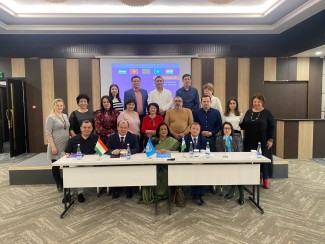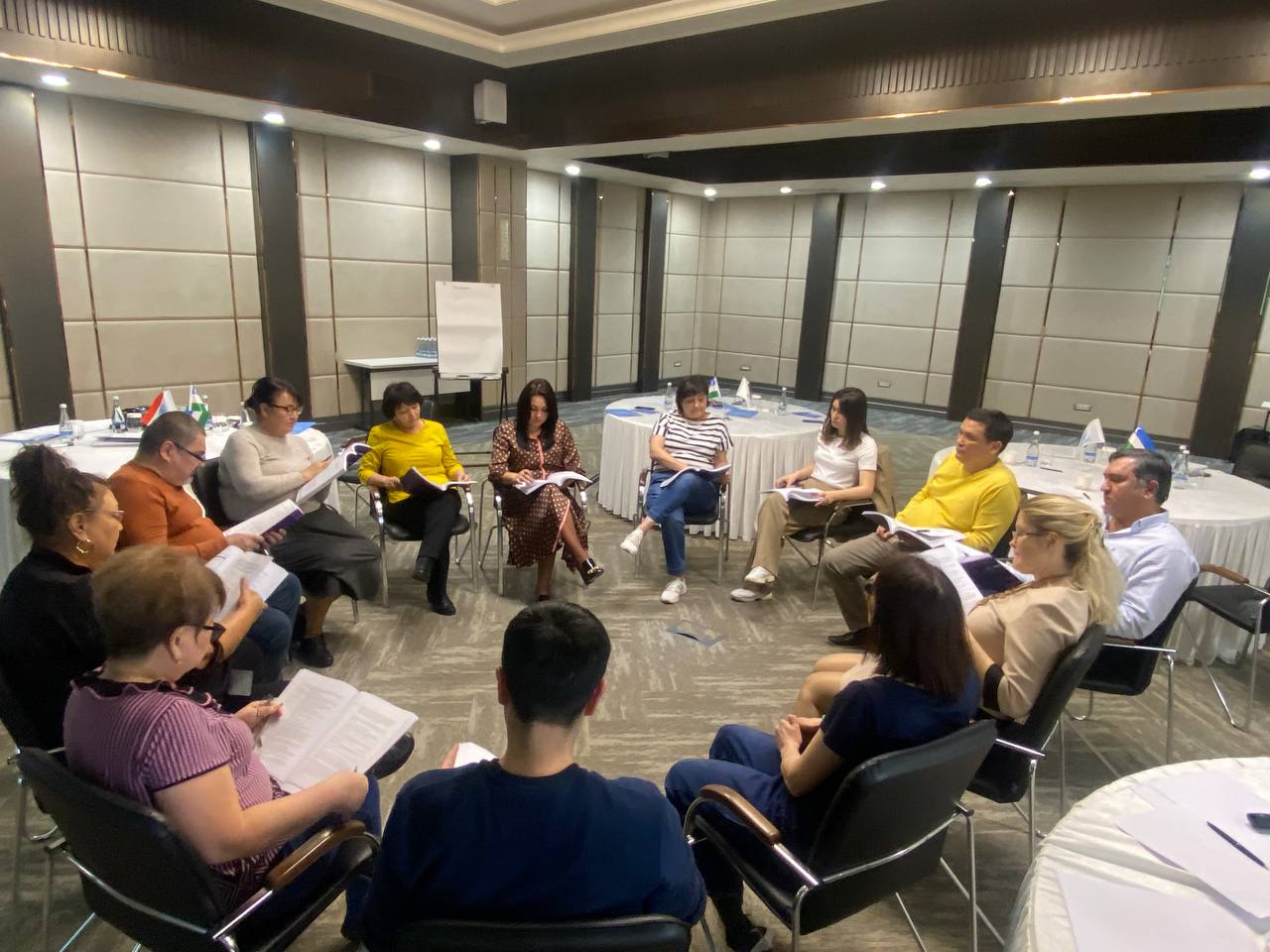UNODC improves clinical and group skills of a team of national trainers from Central Asia

The UNODC Regional Office for Central Asia supported the training for trainers on course 16 – "Advanced Clinical Skills" and on course 19 – "Strengthening group skills", which took place in Tashkent, Uzbekistan, on 20-24 February 2023, These courses are part of the Advanced Level Of the Universal Curriculum for the Treatment of Substance Use Disorders (UTC Training Package).
Fifteen (15) members of the national team of trainers from Tajikistan (5) and Uzbekistan (10) took part in the training conducted by a team of regional master trainers.
"Health-centred, rights-based and gender-sensitive approaches to drug use and related diseases deliver better public health outcomes. We need to ensure such a response with greater support, especially for developing countries, in line with the Sustainable Development Goals. At UNODC, we are determined to step up our efforts to help people. As part of this effort, the training is a logical continuation of the capacity building activities that have been carried out in the region since 2010. Building on human resources trained by UNODC in recent years to implement evidence-based approaches to drug dependence treatment and care, the objective of this event is to further strengthen capacity in the delivery of drug dependence treatment services and care, monitoring and research. at the national level in the countries of the region. This support is based on the assumption that national partners can ensure the further dissemination of training to the level of practice through eco-trainings by national trainers on relevant training packages," said Ms Ashita Mittal, UNODC Regional Representative for Central Asia.
The first training course aimed to provide an in-depth understanding of basic counseling approaches and specific theories, as well as an overview of the application of specific counseling theories in the treatment of substance dependence.
The second training course presented an overview of the basic theory of group work and skills, how to start, conduct and end group work, how to work with group dynamics in medical institutions, how to work with population groups with special clinical needs, guidance on ethical issues. conduct, proper documentation and supervision of group work.

"For me, as a practitioner, the training was an invaluable gift. In the course of theoretical and practical sessions, I found answers to many questions that I had arisen earlier. Especially useful for me were the opinions and experiences of other participants, which everyone willingly shared. Everything that I learned from this training, I will apply in my work," said Vladimir Myagke, a member of the national team of trainers from Tajikistan.
The training was conducted within the framework of UNODC's global project GLOJ71 "Treatment of Drug Dependence and Its Health Consequences: Tritnet II" in collaboration with Subprogramme 3: Addressing Drug Problems, Strengthening Treatment of Drug Use Disorders and HIV/AIDS Prevention of the UNODC Programme for Central Asia for 2022-2025 and the Prevention, Treatment and Rehabilitation Section, UNODC Headquarters with financial support from the Bureau of International Drug Affairs and law enforcement agencies of the U.S. Department of State (INL).
